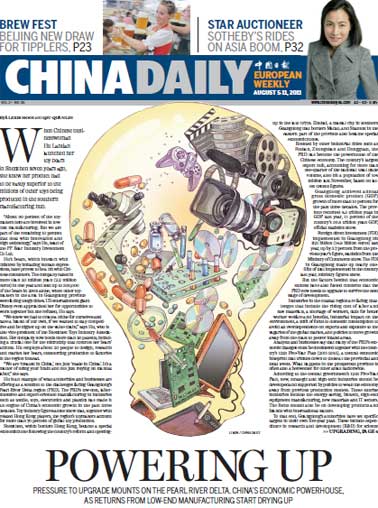Photos
Memorial for Japanese settlers in China sparks debate
Updated: 2011-08-10 17:59
(chinadaily.com.cn)
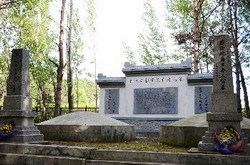
A memorial wall that was erected in July in Fangzheng county in Northeast China's Heilongjiang province has provoked discontent and criticism from Chinese netizens. The Fangzheng county government built the wall at a cost of 700,000 yuan ($108,500 US dollars) for more than 5,000 Japanese settlers who stayed and died in the county after Japan surrendered in 1945.
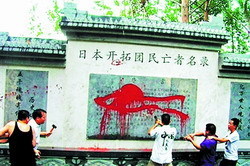
The county's deputy head contended that their original intention was to reflect on the past and wish for peace, but Chinese netizens are hardly satisfied. Many think building the memorial is a betrayal to history and a humiliation to the whole nation. Five Chinese men came to the county and splashed red paint on the wall to express their anger. In an effort to appease public rage, the local government eventually demolished the memorial wall.
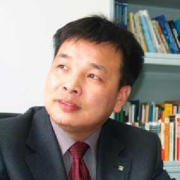
Chen Jieren, researcher at Legal News Research Center, China University of Political Science and Law
More than erecting a monument for the so-called "Japanese settlers", who were involved in the military invasion, the local government of Fangzheng county of Heilongjiang Province even requires all signposts to be marked with Japanese translations. The county's intention of attracting more investment and tourism from the Japanese is in no way to blame, but they forget the national humiliation and basic political ethics. The treasonable actions are the result of placing undue emphasis on the economic development while ignoring social ethics.
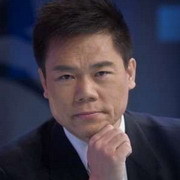
Si Manan
First, "Japanese settlers" are not just ordinary people but part of the Japanese invaders; second, the settlers held a stance of invasion till their death, without any repentance or apology for their actions; third, the Japanese textbooks portrayed their military and the settlers' invasion as "advancing into China", which is a deception to their next generation. To sum up, erecting a monument for the Japanese settlers equals erecting one for the Japanese invasion, equals whitewashing the invasion, and equals distorting the history and bringing a disgrace to the heroes, who, in fighting against Japanese invaders, sacrificed their lives for this land.
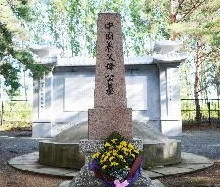
@Nifenghudie
It's a matter of national "face" to spend 700,000 yuan on a monument for invaders. If the government insists doing it, it will definitely be disdained by the whole nation. It is not about memories of history or hatred, but about the rage triggered by all the evils the Japanese government and its people have done to Chinese people.
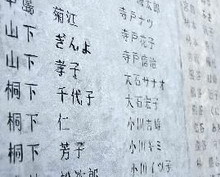
@Ailedexin
The monument for "the Japanese settlers" in Fangzhen County of Heilongjiang Province is said to have been smashed. But why smashed it, instead of filing a law suit to remove it? I think the society should reach a consensus that all the disputes should be settled in a lawful way, by the court, and all people should respect the judgment of the court.
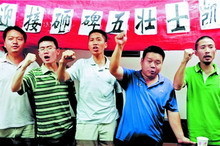
@Jinriwangshi
The reason why I didn't write comments on Fangzheng county's erection of the monument is that I don't want to stir hatred for Japan. However, that does not mean I approve of it. We have so much to learn from the Japanese, and I hope we can live peacefully together with them and be on friendly terms, but that cannot serve as an excuse for building a monument for the invaders. The five people who smashed the monument may be ultra-nationalists, who I don't support, but I advocate their action.
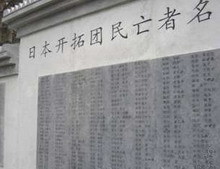
@Limu
Building cemeteries or erecting monuments for the Japanese is acceptable. But those who oppose it cannot accept having the word 'settlers' inscribed onto the monument, because even the most tolerable Chinese cannot deny that the armed Japanese settlers were actually invaders.
E-paper
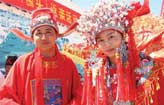
My Chinese Valentine
Local businesses are cashing in on a traditional love story involving a cow herder and a goddess
Outdoor success
Lifting the veil
Allure of mystery
Specials

Star journalist leaves legacy
Li Xing, China Daily's assistant editor-in-chief and veteran columnist, died of a cerebral hemorrhage on Aug 7 in Washington DC, US.
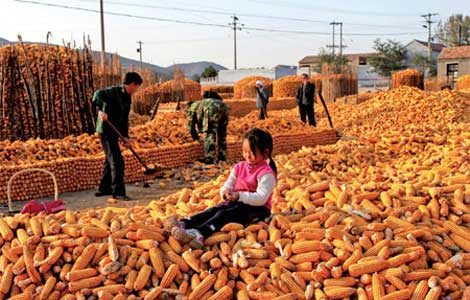
Sowing the seeds of doubt
The presence in China of multinationals such as Monsanto and Pioneer is sparking controversy

Lifting the veil
Beijing's Palace Museum, also known as the Forbidden City, is steeped in history, dreams and tears, which are perfectly reflected in design.
